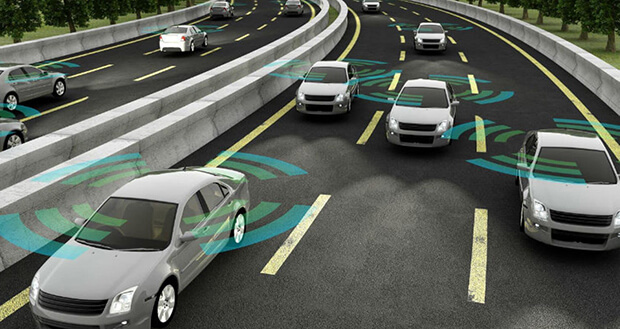$7 Trillion Annual Market Projected for Autonomous Cars

Autonomous Car Market
According to a new study by Intel, autonomous vehicles will generate $7 trillion per year by 2050.
This autonomous vehicle revolution vehicles will see an unprecedented transformation of the global industry as autonomous vehicles displace human drivers all over the world. Large vehicle fleets, such as trucks, buses, taxis and delivery vehicles will be the likely first movers in the autonomous vehicle uptake.
To help autonomy move forward, car makers are manufacturing advanced vehicle vision and detection systems essential for the industries advancement, with multiple system tests already underway all across the world.
The study commissioned by Intel predicts that autonomous vehicles will create a massive economic opportunity that will scale from $800 billion in 2035 to upwards of $7 trillion by 2050. The trillions are calculated when taking into consideration the value of all products and services derived from fully autonomous vehicles and this would include massive savings in time.
Not only will there be financial benefits from vehicle automation but the study also postulates that because of greatly enhanced safety, autonomous vehicles will save more than 580,000 lives between 2035 and 2045.
The evidence is mounting and is also outlined in the study that companies that do not engage now and prepare for autonomous transportation, risk failure or even possible extinction.
The potential and opportunity for this exciting and burgeoning industry is massive but in saying that, technological hurdles must still be overcome. Just as every major advance in history, the complexities of autonomous transportation will be solved like all other challenges in in the past, with outsized rewards delivered to those who provide solutions.
Foresight Autonomous Holdings Ltd. uses stereoscopic technology to create advanced detection solutions that mimic human depth perception - one of the robotic "senses" necessary to move autonomous vehicles into the mainstream.
Technology companies like FLIR Systems, Inc. are at this time designing and delivering technologies to enhance perception and awareness, producing an automotive-qualified passive infrared sensor currently offered on several vehicles.
A subsidiary of Google’s parent company, Alphabet Inc. started testing self-driving cars in 2009 and is recognized as a leader in the field. Ford Motor Company is aggressively testing autonomous vehicles to identify then target the most lucrative business model, while Tesla Inc. is leveraging its current semi-autonomous system, Autopilot, to collect real-world data about how those vehicles might perform fully autonomously. 
Author

Justin Kavanagh
Justin Kavanagh is a recognised leader
in automotive intelligence and vehicle
data supply to the entire motor industry.
He has almost 20 years experience in
building systems from the ground up.
As the Managing Director of Vehicle
Management System, he understands the
need and importance of trustworthy and
reliable vehicle history and advice to
both the trade and the public.
Follow me on LinkedIn